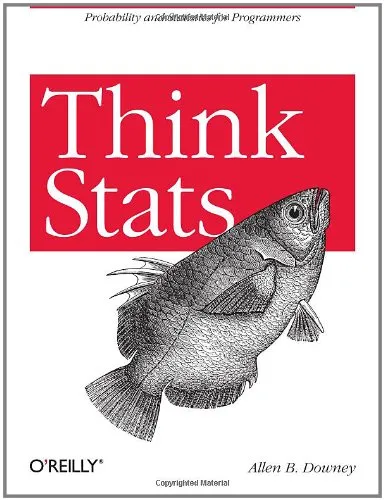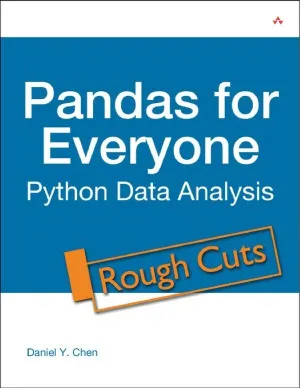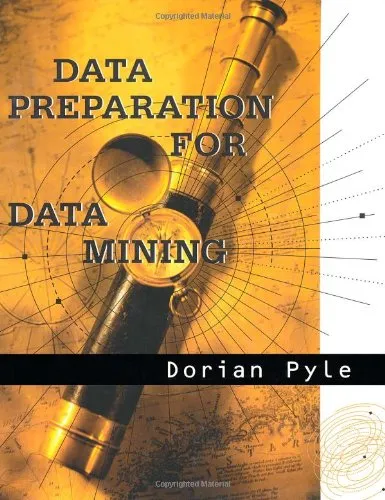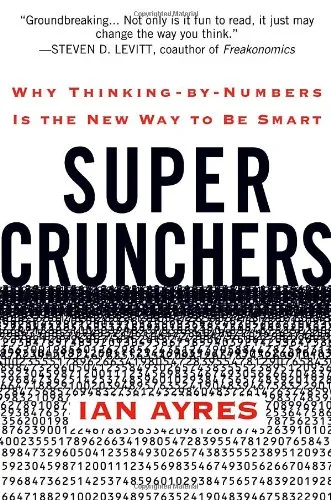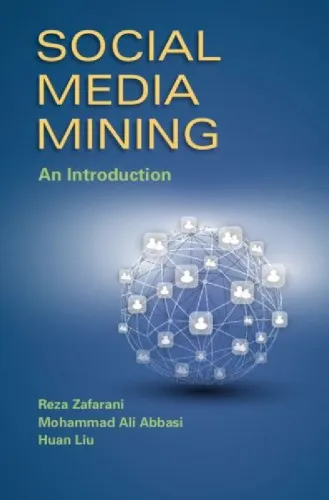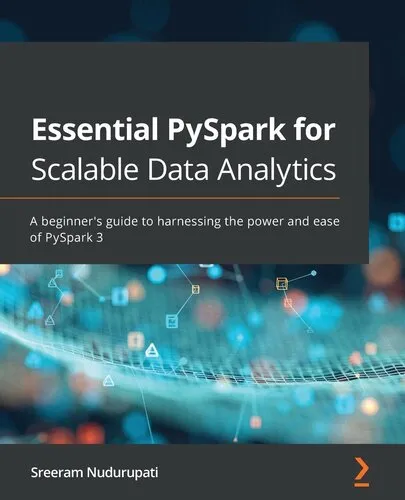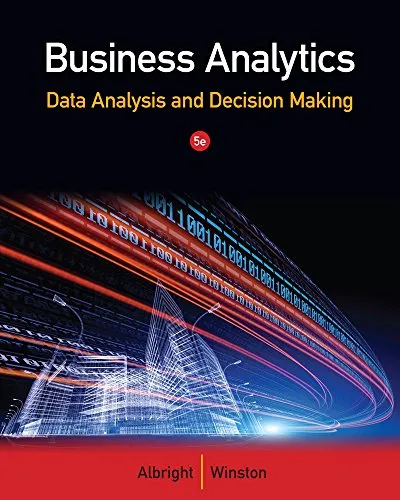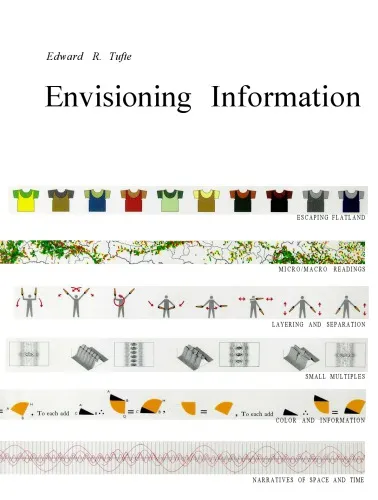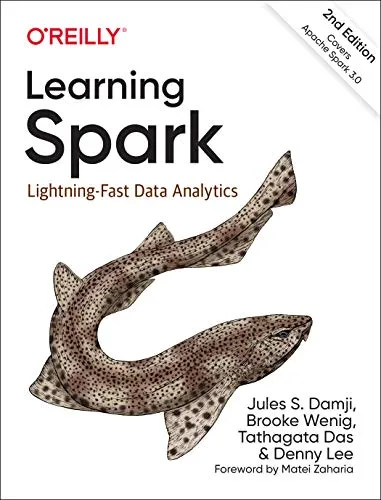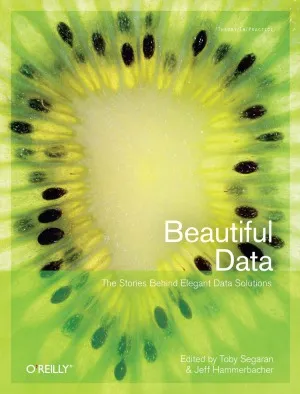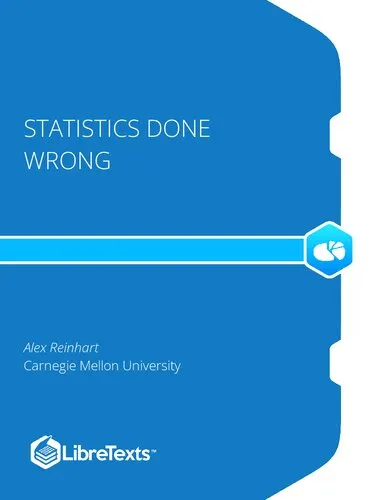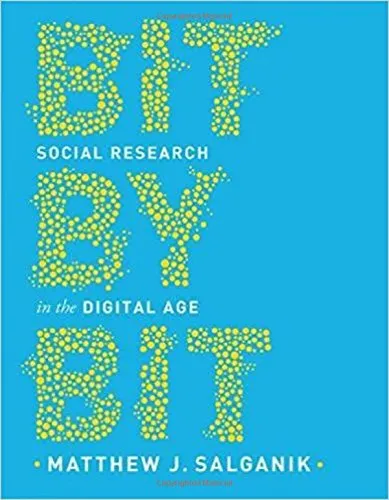Think Stats
4.5
Reviews from our users

You Can Ask your questions from this book's AI after Login
Each download or ask from book AI costs 2 points. To earn more free points, please visit the Points Guide Page and complete some valuable actions.کتاب های مرتبط:
Welcome to the introduction of Think Stats: Exploratory Data Analysis in Python. If you’ve ever wanted to dive deep into statistics or leverage Python to analyze real-world data, this book is tailor-made for you. It provides a practical, hands-on approach to learning statistics while highlighting the synergy between programming and data exploration.
Detailed Summary of the Book
At its core, Think Stats serves as a both an educational guide to statistics and a programming tutorial. Unlike traditional books that prioritize theory, this book focuses on building your intuition through practical, relatable examples. Using Python, the reader is introduced to a variety of statistical concepts through real-world datasets, such as data on pregnancies from the National Survey of Family Growth (NSFG).
Think Stats unfolds in an easy-to-understand progression of topics, starting with probability and descriptive statistics before moving into visualization, hypothesis testing, Bayesian statistics, and other advanced methods of inference. Through hands-on coding exercises, you will learn to clean data, calculate estimators, test relationships between variables, and ultimately tell stories through data. The emphasis is always on understanding the thinking behind statistical tools rather than memorizing formulas or definitions.
The book also introduces important computational techniques like resampling, bootstrapping, and simulations, which are often omitted in introductory texts. By the end, readers not only understand statistical concepts more intuitively but also become familiar with Python libraries, such as NumPy, SciPy, and Matplotlib, that help them apply these concepts in practice.
Key Takeaways
- Statistics is about understanding data, not just performing mathematical calculations.
- Learning to program in Python enhances the ability to analyze and visualize data effectively.
- Hands-on projects and real-world datasets make concepts more approachable and relatable.
- Bayesian statistics offers a powerful, intuitive approach to modeling uncertainty.
- Data exploration often uncovers unexpected insights that traditional methods miss.
Famous Quotes from the Book
“Exploratory data analysis focuses on the unanticipated; it is about discovery, flexibility, and insight.”
“The goal is not just to learn tools, but to use them to develop better intuition for statistics and probability.”
“Statistics is not just a math problem; it’s a people problem.”
Why This Book Matters
Think Stats stands out because it bridges the gap between academic theory and practical application. Many readers struggle with statistics because the traditional focus on formulas and proofs can feel detached from real-world relevance. By embracing a practical, programming-first approach, this book makes the field of statistics accessible and enjoyable for programmers, data scientists, and enthusiasts alike.
In today’s world, data is everywhere—making statistical literacy a critical skill. Whether you're analyzing customer trends, performing scientific research, or building machine learning models, the fundamental ability to think statistically can shape sound conclusions and decisions. Think Stats refrains from overwhelming the reader with jargon and abstract mathematics; instead, it emphasizes building actionable skills grounded in exploration and experimentation.
In short, Think Stats matters because it not only teaches you the tools of data analysis but also transforms the way you approach uncertainty, decision-making, and data-driven problems. This knowledge is invaluable whether you're a beginner in data science or a professional looking to enhance your analytical skill set.
Free Direct Download
You Can Download this book after Login
Accessing books through legal platforms and public libraries not only supports the rights of authors and publishers but also contributes to the sustainability of reading culture. Before downloading, please take a moment to consider these options.
Find this book on other platforms:
WorldCat helps you find books in libraries worldwide.
See ratings, reviews, and discussions on Goodreads.
Find and buy rare or used books on AbeBooks.
1469
بازدید4.5
امتیاز0
نظر98%
رضایتReviews:
4.5
Based on 0 users review
Questions & Answers
Ask questions about this book or help others by answering
No questions yet. Be the first to ask!
